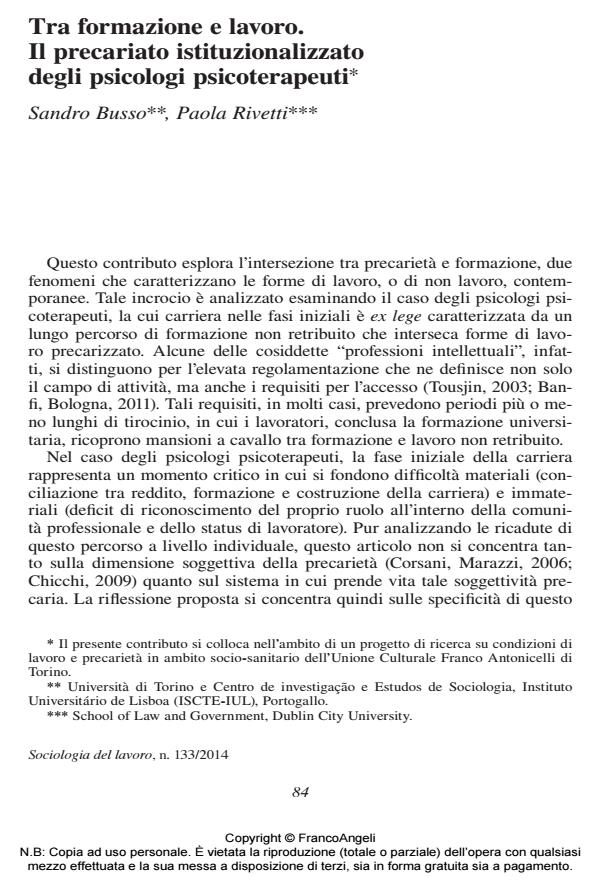Between training and work. The institutionalized precariousness of psychologists psychotherapists
Journal title SOCIOLOGIA DEL LAVORO
Author/s Sandro Busso, Paola Rivetti
Publishing Year 2014 Issue 2014/133
Language Italian Pages 12 P. 84-95 File size 679 KB
DOI 10.3280/SL2014-133006
DOI is like a bar code for intellectual property: to have more infomation
click here
Below, you can see the article first page
If you want to buy this article in PDF format, you can do it, following the instructions to buy download credits

FrancoAngeli is member of Publishers International Linking Association, Inc (PILA), a not-for-profit association which run the CrossRef service enabling links to and from online scholarly content.
The article focuses on the case of Italian psychologists in order to examine how internship is connected to precarity. In this case, unpaid training enjoys strong legitimacy as it is imposed by the law and represents the prerequisite for the profession. The article investigates the institutionalization of unpaid training and its consequences for the development of the psychologists’ professional profile. It also examines the consequences of this institutionalization for the profession, arguing that both top-down and bottom-up incentives for change are absent. Precarious psychologists find it very difficult to exert voice or ally for political action, whereas employers enjoy free labor force while carrying no responsibility for their working conditions or career development. The article concludes by contributing to the wider debate on training-precarity nexus, which is crucial as the divide between work and training is more and more blurred.
Keywords: Precarity, internship, unpaid training, free work, psychotherapists, political action
Sandro Busso, Paola Rivetti, Tra formazione e lavoro. Il precariato istituzionalizzato degli psicologi psicoterapeuti in "SOCIOLOGIA DEL LAVORO " 133/2014, pp 84-95, DOI: 10.3280/SL2014-133006